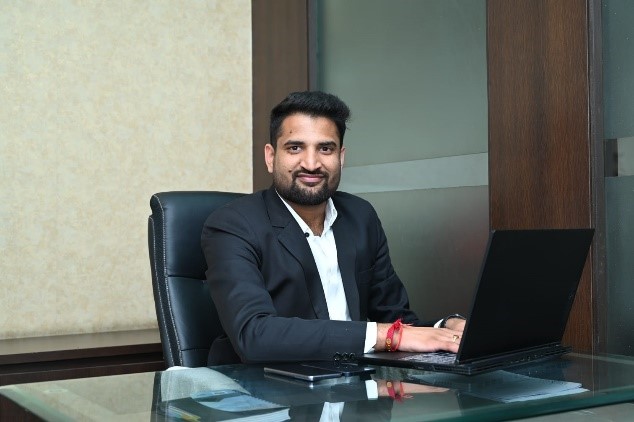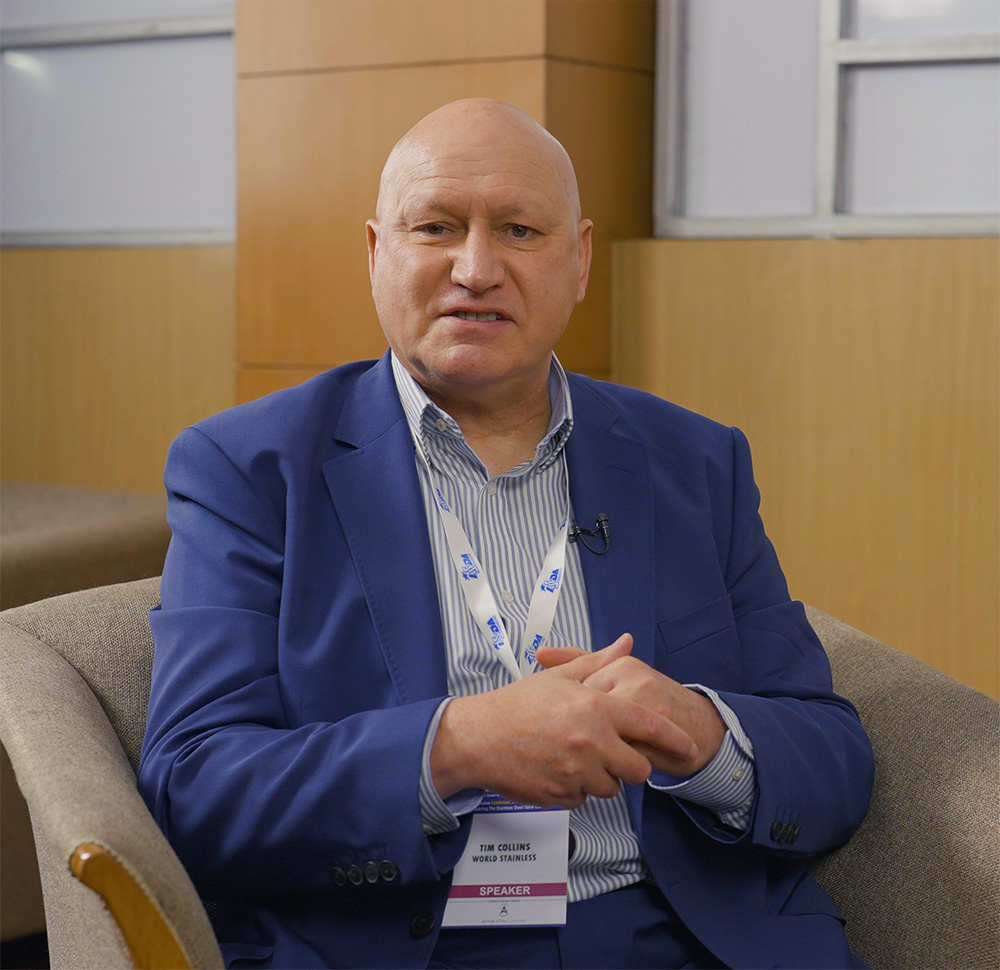Interview of Professor Manoj Choudhary
October 31, 2025
In this edition, we feature Professor Manoj Choudhary, a technologist and academic who has truly lived Moore’s Law — witnessing computing power double, chips shrink, and possibilities multiply. From helping develop the world’s first 5G chip and 108-megapixel smartphone camera at Samsung R&D, to serving as Dean at IIT Jodhpur, Professor Choudhary now leads as the Founding Vice Chancellor of Gati Shakti Vishwavidyalaya, bringing an exponential, innovation-driven mindset to education.
In conversation with Manisha from our Corporate Communications team, he shares insights on his journey, the future of transport and logistics, and bridging the gap between academia and industry.

So, you have been a technologist, a researcher, and now a professor who is trying to build an academia and an institution all from scratch. Tell us more about your journey.
I have been a student all my life and I am a teacher at heart. Therefore, after my PhD from IIT Kanpur, I worked in technology industry for 21 years, mostly in the roles related to advanced research and new product development.
I must say, an extremely fascinating mix of experiences, from lab to the boardroom and back to the classroom. For such a unique institution as Gati Shakti Vishwavidyalaya, I want to understand, what are the challenges? What are the national level problems probably that this institution and your team is trying to solve?
Our national highway is growing at a rate of 35 kilometers a day. Our number of airports has doubled from 74 some 10-11 years back to one sixty two plus now. Now more than five lakh passengers take air travel every day. On the other hand, two crore passengers take Indian Railways travel every day. So, there is a great expansion that is happening. In order that this infrastructure development is created with a customer point of view. That is one side.
The second is a need — when the infrastructure is created, how do we improve logistics in India? Which is so much needed for manufacturing operations, which is so much needed to make our farming sector more efficient, which is needed for our day-to-day job. With that, there is a great demand in India that this entire infrastructure and transportation logistics sector — there was no dedicated institute or university in India. \
While we have 23 IITs, 21 IIMs, or 32 NITs and 1200 universities, there was a need felt that with such a large sector and PM Gati Shakti National Master Plan — which is the single biggest masterplan after Independence, roughly with the investment of 1.2 trillion US dollar — we need to have specialized, dedicated, superior human resources to develop this sector as we proceed towards Viksit Bharat. And I think that is a very, very big mandate and most unique approach in whole of India that now we are approaching the problems of the sector through a sector-focused university.
Don’t you think there is a gap between what is taught in the classrooms on one hand, and what the industry actually needs? And I believe somewhere this institution is also trying to bridge that gap.
I think the simple answer to your question is, two people do not understand each other’s expectations if they do not talk to each other. Right? If industry does not tell what they need, if academia does not listen what is needed by the industry, there is no way you can say that what industry needs and what academia produces, there is a gap.
Therefore, our university offers a whiteboard to the industry that you tell us what kind of graduates you will need as your future employees, and we will produce that. But it is not a give or take approach — it is not that you prescribe. It is an approach that is of co-creation and co-development. Industry not only tells us what to teach, but industry significantly participates with us through the entire learning process.
A large number of our faculty members are industry experts. So, while our regular faculty members who all have good degrees from IITs & NITs, they take the theoretical courses and all sector-related courses are taught by industry experts. Further, our university has inbuilt methods of practical immersion through mandatory summer internship programs that the university organizes in support with industry, and we have several industry certificate programs.
Though we are still new, an example of that is that this year, out of 194 students who graduated in the third convocation, we had an outstanding 91% placement.
We often see students studying electrical and getting placed in the I.T. industry. Do you think it is lack of opportunities? And coming to the question in particular — when you have an institution that is industry-driven, like Gati Shakti Vishwavidyalaya, what are the tangible aspects for students? Is it just internships? Is it research papers? What is it that we are talking about?
So firstly and foremost, Gati Shakti Vishwavidyalaya is a university that focuses on applied education and research. That is the first and foremost point.
In example, if I have to give, we are a university that has a center of excellence set up by the Railway Board. So, you not only think about new bridges to be designed, but you look at the fact that they are supposed to last 100 years or more. On the other side, our students are well-trained in railway signaling systems, European train control systems, and so on.
Therefore, by focusing on the applied education research, we are able to look at the industry problem. And when our industry experts come and teach in the classrooms, of course, they take many examples of the industry use cases.
So recently, Gati Shakti Vishwavidyalaya had inked an MoU with Jindal Stainless. Taking it forward, we want to understand, where do you think stainless steel is going to have an impact in particularly transport and logistics sector?
Stainless steel, as we all know, Jindal Stainless is the leader in that. It is one of the very important material in terms of construction of our transportation, whether in railways or airports or everywhere. And therefore, when we look at the infrastructure segment, we look at from end to end — how do we construct, how do we maintain, what is the end life cycle and so on.
In future, as you know, in transportation sector or in any other sector, we are always looking for upgradation in technology. For example, we want to build newer vehicles which are supposed to long last, which are much more greener in nature, environment friendly, which are much more lighter, so that they consume lesser fuel. And I think this is the joint research that we shall pursue, so therefore, it is a completely win-win situation on both sides.
Where do you think is transportation and logistics sector heading? What would be the impact? Because as you said, the choices we make today are going to build the future tomorrow.
So when we build a new transport system, the physical infrastructure, if I have to say it, is not only to connect people, connect cities, but it is a new way of living. Let us take an example of the bullet train project between Ahmedabad and Mumbai. It is not merely an issue of 508 kilometers that can be traversed faster, but assume a city like Mumbai where there are a lot of people, real estate is costly, and commute times are higher.
And though there are many opportunities, people want to live there, but it is very difficult to live. Assume that we have a bullet train project, and within one hour of the daily commute, you are able to go to Mumbai in the morning and come back from Mumbai. It opens up a new era of economic corridors, new possibilities of how people live, how people travel.
Similarly, in terms of freight transportation — how can we move things faster? Vegetables and many of the perishable products end up getting destroyed because we cannot move them fast enough. But if the transportation logistics sector is more efficient, we can do that.
I want to bring this conversation back to the person who is at the center of this all. That’s you. Let’s say a student passes out of Gati Shakti Vishwavidyalaya today. What do you think in 20 years hence, what is he going to talk about his alma mater? To his peers, to his children? What is this legacy that you hope to leave behind?
I believe that in 2047, almost every organization, the company directed to transportation logistics, shall be headed by the alumni of Gati Shakti Vishwavidyalaya. Number one. Number two, I strongly believe the university is not about mainly buildings, classrooms and so on. That is the body of the university, but the soul is in the culture of the university — a university that purposes on inquisitiveness, creativity, curiosity, and therefore we believe we have a tremendous responsibility, mandate and an obligation to contribute to national development to this mission.
And we believe that this is something which is very, very unique in this university that apart from regular education programmes, there is a big focus on training officers who are already working in the field and upskilling and reskilling them to face the future challenges of a 21st century country.
It was such a pleasure learning about your journey, your vision, how Gati Shakti Vishwavidyalaya is contributing to nation building. One takeaway for us is that this is not just an educational setup. This is something you’re preparing students for a future that we can barely imagine at this point. Gati Shakti Vishwavidyalaya shall provide both the Gati and Shakti to the aspirations of our country to become the Viksit Bharat. Thank you so much sir.





